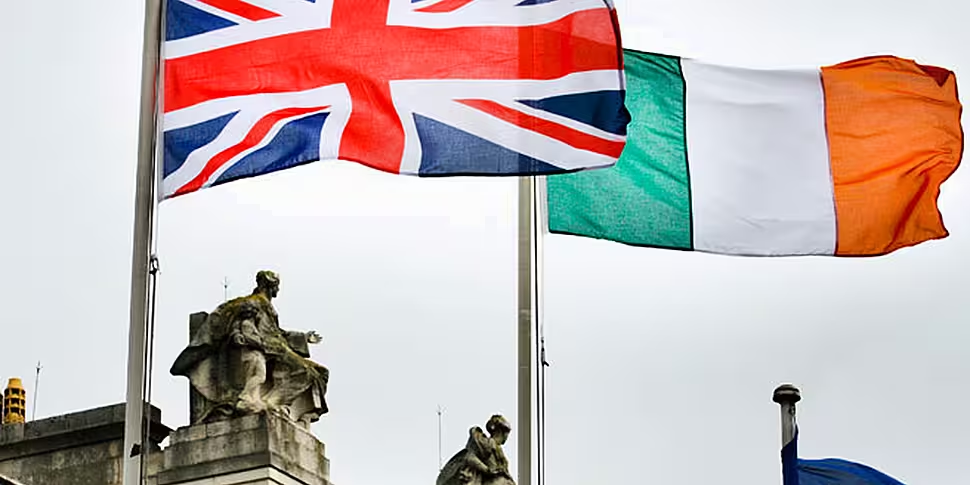The Brexit process is now officially underway, with Ireland primed to spend the next two years attempting to jostle to get into the best economic position possible as the UK gets divorced from the EU.
While much of the talk is around damage limitation, with doom and gloom scenarios being painted by everyone from Fianna Fáil TD Stephen Donnelly to economist David McWilliams, there are a number of ways in which Ireland could take advantage of the EU shake-up, creating new business and opening trading channels in the process...
The €650 billion public tendering market
The Irish Small and Medium Enterprises Association (ISME) seized the Article 50 news initiative today to shed light on a key global and public tendering market that may become more attractive to Irish firms, as their UK counterparts withdraw from it.
ISME chief executive Neil McDonnell joined this morning's Breakfast Business to outline the potential opportunities.
"This is EU Commission money," McDonnell explained. "There is more than just EU Commission money out there – the reason that we're active at the moment is that this particular tranche of money becomes available from [the middle of] next month."
The so-called New Framework Contract will be worth €650bn in total over the next four years.
With 60% of the money being delivered upfront, McDonnell calls it the, "nearest thing you're going to get to no credit risk".

"The World Bank and IMF are also very active in this area," McDonnell notes.
"We're alerting people to the EU funding because the most successful country in tendering for this aid budget money has in fact been the UK over the last number of years.
"We understand already that the consortium that have tendered for this historically are not voicing an interest in going again. You can understand why.
"Yet, the most important characteristic for these cross-border tenders is the ability to speak English. So we feel Irish companies, Irish SMEs, are going to have a huge advantage in putting their name forward now."

Currently, McDonnell says Ireland is failing to capitalise on the opportunities in the market when compared with its EU counterparts:
"Hungary, despite the fact that it's only a recent entrant to the EU, is a winner of a substantial chunk of this overseas aid development money already.
"Denmark, which is a similar-sized economy to ours, is winning seven or eight times the kind of money that Irish firms are winning."
While it is unlikely that more than one Irish company will be selected as a lead consortium member, "there's absolutely nothing to SMEs in Ireland applying to be junior consortium partners".
These tenders cover a plethora of areas:
"At a high level, category one would be agriculture, food and climate. The second would infrastructure, IT, water and energy.
"The third would be government, security and local authority work. The fourth is trade, employment and private sector work. And the last one is education, culture and health."
Financial services
As multinationals feel the need to establish European bases outside of the UK, the Irish capital is becoming an increasing draw.
A Movinga study released last week named Dublin as the top place for companies to relocate due to Brexit.
The ranking puts the Irish capital at the top spot for banks, owing to our language, the relatively cheap cost of high-end rental accommodation and more. The survey also looked at factors such as the income tax rate, cost of dry cleaning, the number of Michelin restaurants and the cost of an air fare to London.

Earlier this month, global investment giant Legg Mason confirmed its plans to establish a fund management company in Dublin.
A spokeswoman for the group, which controls over $710bn (€670bn) in assets, told The Irish Times:
"The firm has a management company in the UK and will have one in Dublin to allow us flexibility to serve clients as needed.
"As the outline of Brexit becomes clearer, we are well-positioned to respond as needed to ensure we are ready to serve our clients."
It is not known how many jobs will be created as a result of the move.

On the downside, Dublin looks set to miss out on becoming the new EU home of big insurance companies Lloyd's of London and AIG.
Both organisations had shortlisted Dublin for such moves and questions have been raised in government and elsewhere as to why Dublin wasn’t chosen, including suggestions that Luxembourg in particular is offering less stringent regulatory and capital requirements than Ireland – an allegation which Luxembourg rejects.
Insurance Ireland said last night that lessons must be learned from these decisions and called for a review process to discover the appropriate changes that we might be required to make to woo future business.
Thankfully, there should be plenty of other opportunities to do so – the Central Bank has confirmed that 30 insurance firms have either expressed an interest in, or sought authorisation for, establishing a new European base in Ireland.
Diversifying our trade
As per the old adage that necessity breeds invention, we should see Irish exporters looking further afield as it seeks new business.
Enterprise Ireland is laying down that particular gauntlet.
Unveiling one of its most extensive calendars of trade support earlier this month, its 2017 programme will involve 145 separate events here and abroad.
One-third of those (46) will be minister-led trade missions with a particular focus on euro zone and North American markets.
As well as those missions, the full programme will include inward buyer visits, market study visits, international trade fairs, embassy events and knowledge seminars. It will all serve to give Irish companies the opportunity to network with potential buyers in markets in Europe, North America, Africa, India, the Middle East and the Asia Pacific region.

Breaking the schedule down, there will be:
- 20 trade events to North America to include a multi-sector trade mission to the USA and Canada and digital technologies trade visit to the USA.
- 22 trade events to Northern Europe to include the ‘Nor Shipping’ trade event to Norway; ‘Medica’ life sciences trade event in Germany and the Paris Air Show aviation trade event.
- 14 trade events to the UK to include ‘Digital Construction’ and ‘UK Financial Services’ trade events.
- 20 trade events to the Asia Pacific region to include a financial services and fintech trade mission.
Third-level education
Trinity College Dublin has established its own task force to help it capitalise on Brexit. Speaking to the University Times earlier this month, the college's director of public affairs and communications Tom Molloy said:
"Very good lecturers, very good professors, who work in the UK at present, whether they’re British or European Union citizens, whether they’re from further afield, are looking around at the moment and thinking about going elsewhere. There’s every reason to think we could get some excellent people to join Trinity."

Getting creative
Bernie Cullinan, CEO of Pragma Advisory and a fellow of the Chartered Institute of Management Accountants, believes that there could be a special role for the creative industries as the full impact of the United Kingdom's decision to leave the European Union is realised.
From award-winning animation studios to huge Hollywood blockbusters filming in the country, Ireland is seeing growth already, but it could be set to grow to an even greater degree as firms start to look outside of the UK.
"The film industry is a great example," Cullinan said. "The tax structure is now very favourable and, after some teething problems in implementation, it is attracting a lot of international interest from companies in this industry.
"Ireland has a robust intellectual property management framework. The impact of Brexit means that the UK runs the risk of lacking the certainty around the management of intellectual property rights, which are long-term assets and therefore need long-term visibility of the legal position."









